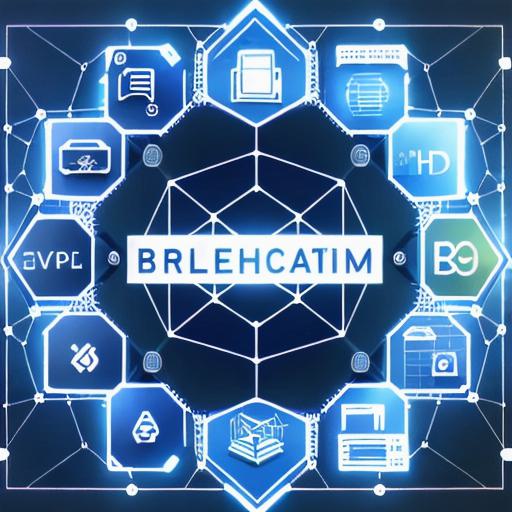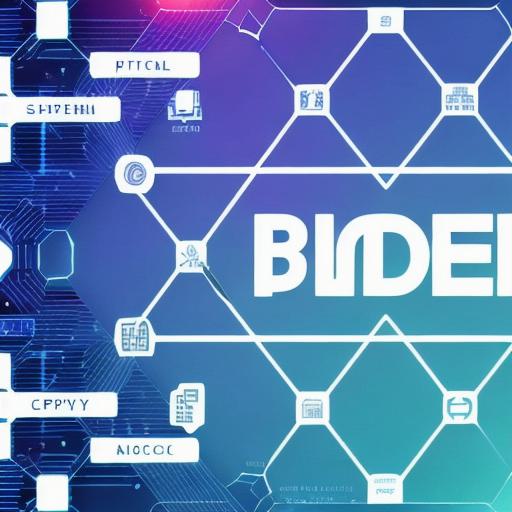Web3.0 blockchain technology is poised to revolutionize the way we interact with data and each other online. With its decentralized, peer-to-peer architecture, it has the potential to solve some of the biggest challenges facing our digital world today. In this article, we will explore the key features and benefits of Web3.0 blockchain technology and provide examples of how it is being used in real-world applications.
What is Web3.0 Blockchain Technology?
Web3.0 blockchain technology is an evolution of the original blockchain technology that underpins cryptocurrencies like Bitcoin. It is designed to be more scalable, efficient, and secure than its predecessor, with a focus on enabling decentralized applications (dApps) that can operate without relying on centralized intermediaries.
Key Features of Web3.0 Blockchain Technology
- Decentralization: Web3.0 blockchain technology is decentralized, meaning that it does not rely on any single entity or organization to validate transactions or maintain the network. This allows for greater transparency and security, as there is no single point of failure.
- Smart Contracts: Web3.0 blockchain technology enables the use of smart contracts, which are self-executing agreements that can be programmed to automatically enforce their terms. This enables greater automation and efficiency in a wide range of applications.
- Immutable Data: Web3.0 blockchain technology uses cryptographic techniques to ensure that data stored on the network is immutable, meaning that it cannot be altered once it has been recorded. This provides a high level of security and integrity for data stored on the network.
- Scalability: Web3.0 blockchain technology is designed to be highly scalable, with the ability to handle large volumes of transactions without degrading performance. This makes it well-suited for applications that require high throughput and low latency.
Real-World Applications of Web3.0 Blockchain Technology
- Decentralized Finance (DeFi): DeFi is a rapidly growing sector of the blockchain industry that leverages Web3.0 technology to enable decentralized financial services, such as lending, borrowing, and trading. DeFi applications operate on a peer-to-peer network, allowing for greater transparency and security than traditional financial systems.
- Supply Chain Management: Web3.0 blockchain technology is being used in supply chain management to enable greater transparency and efficiency in the tracking and verification of goods as they move through the supply chain. This can help reduce fraud, improve product quality, and increase customer trust.
- Identity Verification: Web3.0 blockchain technology can be used for identity verification, allowing individuals to securely and privately manage their personal information online. This can help reduce the risk of identity theft and enable greater control over personal data.
- Voting Systems: Web3.0 blockchain technology is being explored as a potential solution for voting systems, enabling greater security, transparency, and accessibility in the voting process.
FAQs
1. What is Web3.0?
Web3.0 is an evolution of the original blockchain technology that underpins cryptocurrencies like Bitcoin. It is designed to be more scalable, efficient, and secure than its predecessor, with a focus on enabling decentralized applications (dApps) that can operate without relying on centralized intermediaries.


- What are the key features of Web3.0 blockchain technology?
The key features of Web3.0 blockchain technology include decentralization, smart contracts, immutable data, and scalability. - How is Web3.0 blockchain technology being used in real-world applications?
Web3.0 blockchain technology is being used in a variety of real-world applications, including decentralized finance (DeFi), supply chain management, identity verification, and voting systems. - What are the benefits of using Web3.0 blockchain technology?
The benefits of using Web3.0 blockchain technology include greater transparency, security, automation, and efficiency in a wide range of applications. - Is Web3.0 blockchain technology safe to use?
Web3.0 blockchain technology is considered to be highly secure due to its decentralized architecture and cryptographic techniques used to ensure immutable data.
